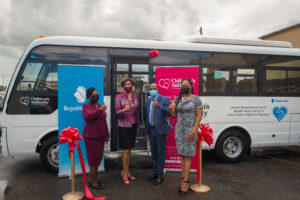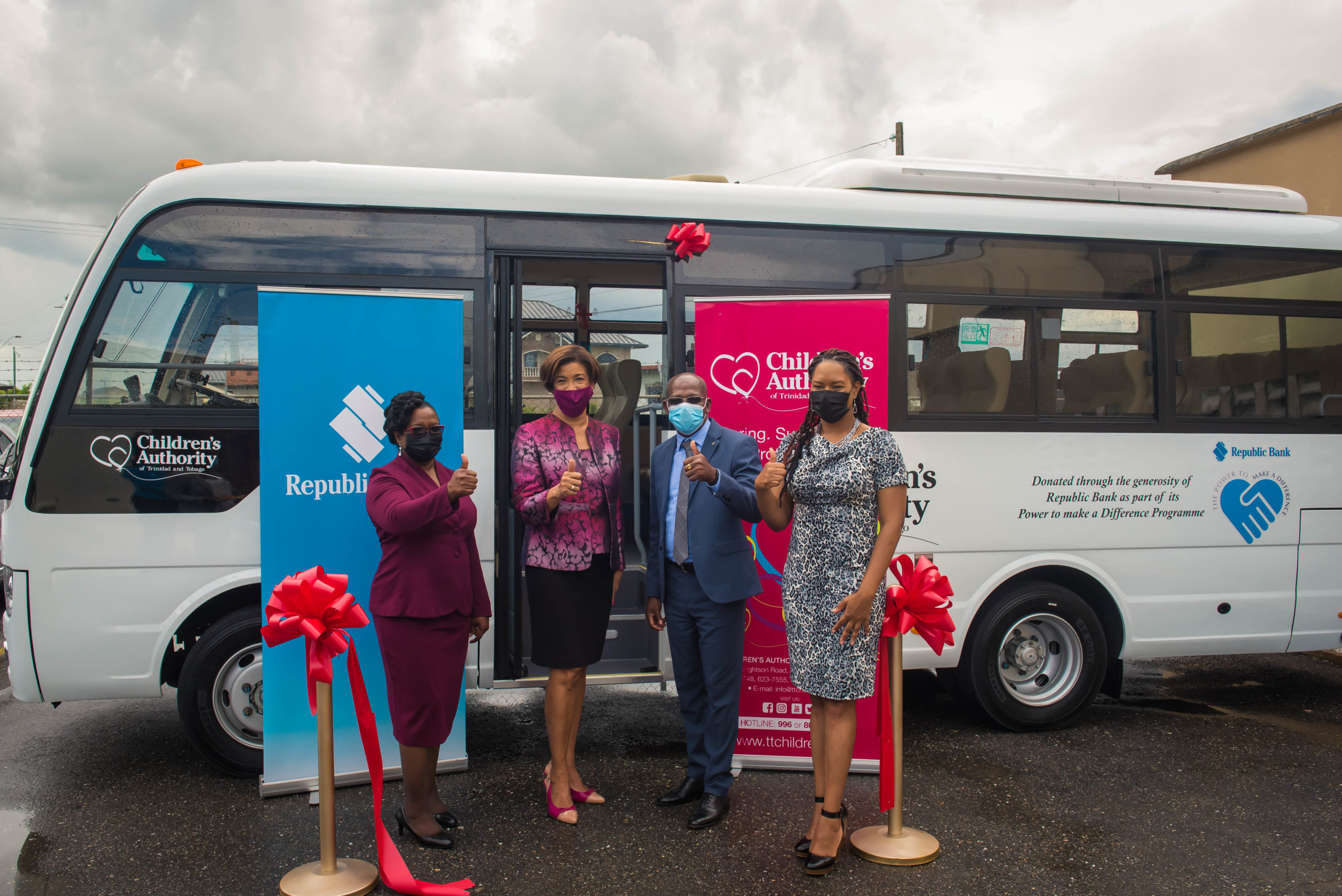September 13, 2022
The Children’s Authority of Trinidad and Tobago has gone ‘mobile!’
With the support of Republic Bank through its Power to Make a Difference Program, the Authority’s community outreach initiative, has received a timely boost with the donation of two (2) buses, one for use in Trinidad and one for use in Tobago. This will enable the Authority to have a greater presence in communities across Trinidad and Tobago, to receive reports of abuse and to sensitise communities on child abuse prevention.
Facilitating the handover of the buses were the Honourable Ayanna Webster-Roy, Minister in the Office of the Prime Minister – Gender and Child Affairs, Dr. Carol Logie, Chairman of the Board of Management, Sharon Morris-Cummings Director Acting at the Children’s Authority and Preston George, General Manager, Group Human Resources and Auriol Small, Area Manager, Tobago from Republic Bank.
The Authority’s Chairman, Dr. Carol Logie welcomed the support of Republic Bank and expressed the hope that this gesture will encourage other like-minded corporate sponsors to collaborate with the Authority and to assist in furthering its mandate, bearing in mind that ‘child protection is everybody’s business’.
Sharon Morris-Cummings, thanking Republic Bank for its contribution, said the buses will assist in strengthening the Authority’s public education programmes to empower children, their families and communities in fighting the scourge of child abuse. In this regard, she said it was critical that the Authority’s reach beyond social media and traditional media was strengthened to effectively engage underserved communities on anti-child abuse messages and information on strengthening the care and protection mechanisms for children.

Minister, Gender and Child Affairs, Preston George, General Manager, Group Human Resources from
Republic Bank Limited, Dr. Carol Logie, Chairman of the Board of Management and Sharon Morris-Cummings, Director Acting of the Children’s Authority.

